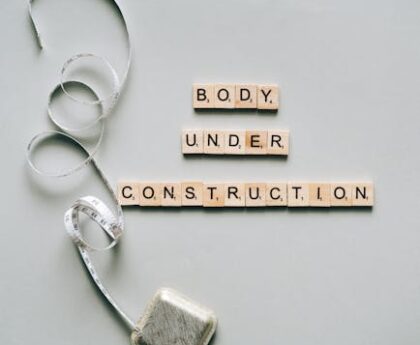Introduction
The ongoing debate between diet and exercise in relation to weight loss and overall health has sparked various opinions. Some argue that diet is the key to shedding pounds, while others believe that exercise is the most effective approach. This article aims to explore the benefits of both diet and exercise and determine the optimal strategy for achieving weight loss and improved health.
The Role of Diet in Weight Loss
Weight loss relies on creating a calorie deficit, which means consuming fewer calories than you burn. Both diet and exercise can contribute to this, but managing calorie intake through dietary adjustments tends to be more manageable than solely relying on exercise.
The 80/20 Rule
In the weight loss community, the 80/20 rule has gained popularity, suggesting that weight loss is 80% influenced by diet and 20% by exercise. This emphasizes the importance of focusing on diet for achieving weight loss goals. By making healthier food choices, controlling portion sizes, and reducing calorie intake, an effective calorie deficit can be achieved without relying solely on exercise.
The Importance of Whole Foods
Choosing whole, minimally processed foods that are rich in fiber, protein, and healthy fats can help manage calorie intake and promote weight loss without the need for meticulous calorie counting. These foods provide essential nutrients and keep you feeling satisfied, making it easier to adhere to a weight loss plan in the long run.
The Role of Exercise in Weight Loss
Building Muscle and Boosting Metabolism
Exercise offers numerous benefits beyond calorie burning, including the preservation and development of muscle mass. Strength training exercises, in particular, can increase your metabolic rate over time, resulting in more calories burned even at rest. This is crucial for sustaining weight loss and preventing muscle loss.
Aerobic Exercise for Calorie Burn
Engaging in aerobic exercises such as walking, jogging, or cycling can significantly burn calories during each session and contribute to a calorie deficit. The intensity, duration, and frequency of aerobic exercise play a role in the amount of calories burned. Additionally, regular exercise helps regulate hunger hormones, preventing overeating and excessive snacking.
Flexibility with Diet
Regular physical activity allows for more flexibility in your diet, making weight loss feel less restrictive. By burning extra calories and increasing your metabolic rate, exercise complements dietary changes and makes weight loss more enjoyable and sustainable.
The Power of Combination: Diet and Exercise
While both diet and exercise offer individual benefits for weight loss, research indicates that combining the two approaches yields the best results.
A Review of Weight Loss Programs
A review comparing weight loss programs focused solely on diet or exercise with programs incorporating both approaches revealed significantly greater weight loss in the latter. Combining dietary changes with regular exercise resulted in over five times more weight loss compared to exercise alone.
Long-Term Weight Loss and Management
Employing a combination of diet and exercise is crucial for achieving long-term weight loss and successful weight management. It allows for greater flexibility in food choices, while physical activity helps maintain muscle mass and boosts metabolism.
The impact on heart health is influenced by both diet and exercise. A healthy heart can be maintained by following heart-healthy diets that include fruits, vegetables, whole grains, healthy fats, and lean proteins. These types of diets have been proven to reduce the risk of heart disease. On the other hand, diets high in saturated fats, sodium, added sugars, and processed meats increase the chances of developing heart disease.
Regular exercise also plays a crucial role in promoting heart health. It has various benefits such as lowering blood pressure, reducing LDL (bad) cholesterol levels, and improving cardiovascular fitness. Engaging in strength training exercises can strengthen the heart and decrease the risk of heart disease. Exercise is also effective in managing risk factors like obesity and type 2 diabetes, which are closely linked to heart disease.
Combining a heart-healthy diet with regular physical activity is the most effective approach to lessen the risk of heart disease. Additional lifestyle changes like quitting smoking, limiting alcohol intake, maintaining a healthy weight, and managing stress further contribute to overall heart health.
Apart from heart health, diet and exercise are also important for other aspects of well-being. Building and maintaining muscle mass requires a combination of resistance training exercises and adequate protein intake. Resistance training stresses the muscles, while protein provides the necessary building blocks for muscle growth.
Moreover, a nutritious diet and regular exercise have been associated with improved mental well-being and a reduced risk of anxiety and depression. Certain nutrients like zinc, vitamins D and B12, and omega-3 fats play a significant role in mental health. Exercise can also regulate mood and help manage stress, contributing to overall mental well-being.
In conclusion, both diet and exercise are essential for weight loss, overall health, and well-being. While diet helps with calorie management and creating a calorie deficit, exercise preserves muscle mass, boosts metabolism, and enhances fitness. To achieve weight loss goals, maintain a healthy heart, build muscle, and promote mental well-being, it is recommended to combine a healthy, balanced diet with regular physical activity. It is always advisable to seek personalized advice and guidance from healthcare professionals during the weight loss journey.





